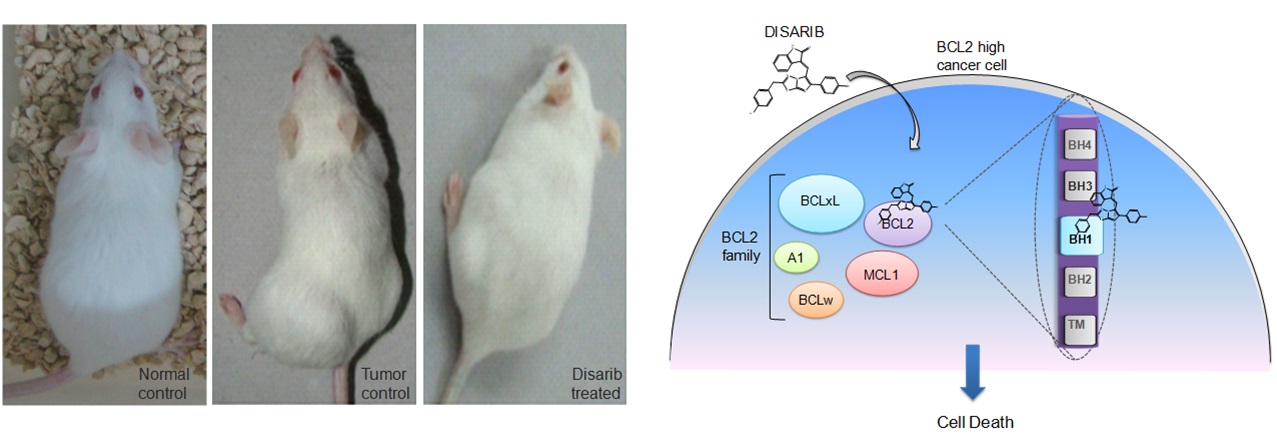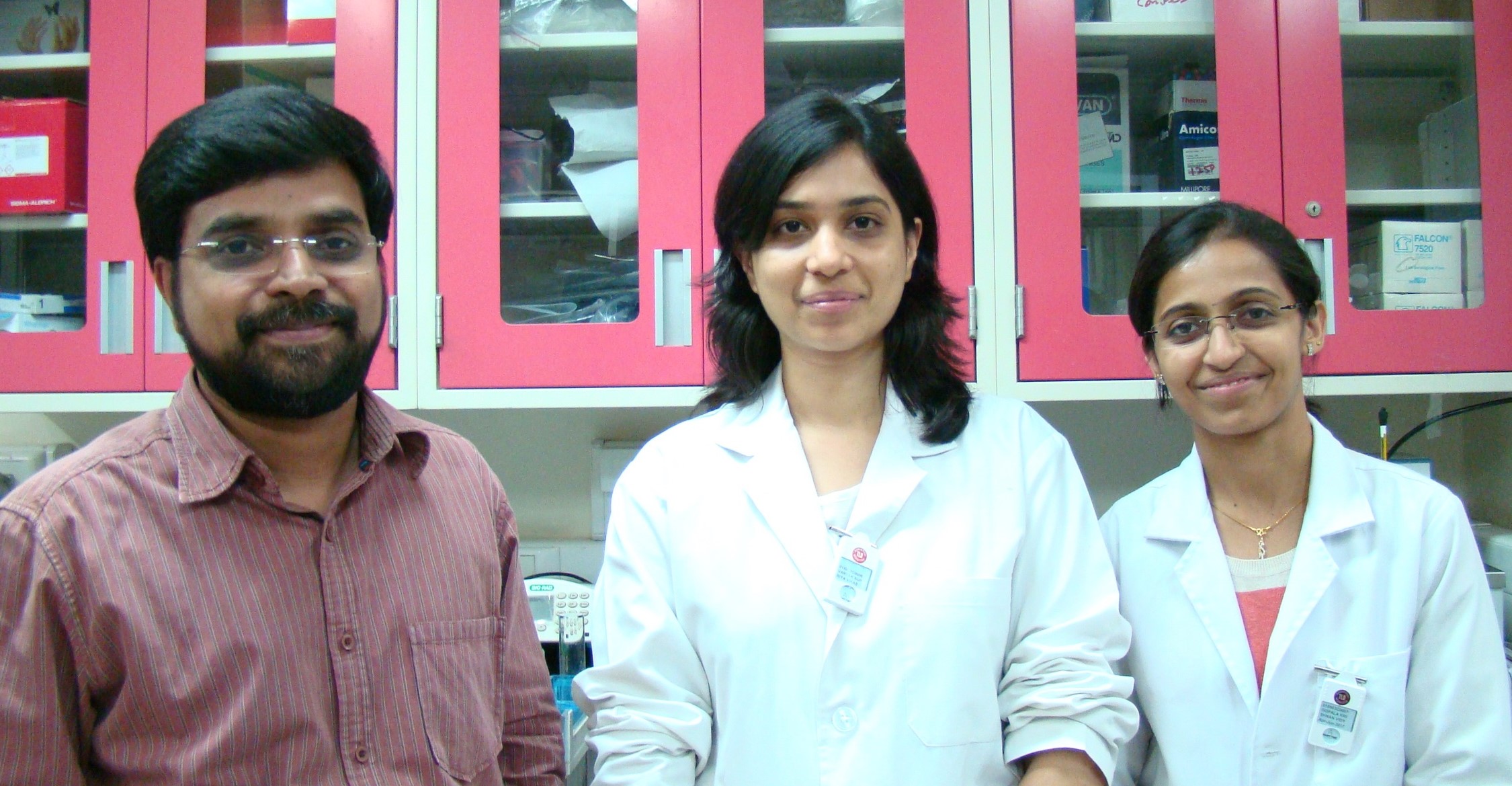A Novel BCL2 inhibitor as Chemotherapeutic Tool

In a recent study, Dr. Sathees C. Raghavan’s group at the Department of Biochemistry in collaboration with six other research groups have identified and extensively characterized a novel small molecule inhibitor, Disarib, which inhibits the function of the antiapoptotic protein, BCL2. The other research groups from India involved are, Prof. Surolia (Molecular Biophysics Unit, IISc, Bangalore), Prof. S. Karki (Department of Pharmaceutical Chemistry, KLE University’s College of Pharmacy, Bangalore), Dr. Bibha Choudhary (Institute of Bioinformatics and Applied Biotechnology, Bangalore), Dr. Pritha Ray (Advanced Centre for Treatment Research and Education in Cancer, Mumbai), Dr. T.R. Santhoshkumar (Rajiv Gandhi Centre for Biotechnology, Trivandrum) and Dr. Nagesh Kalakonda (University of Liverpool, UK).
Dr Sathees Raghavan and graduate students, Supriya Vartak and Vidya G

The antiapoptotic protein BCL2 is overexpressed in several cancers (unlike normal cells, where its expression is undetectable or low), and contributes to prolonged cell survival and chemoresistance, lending itself an excellent target for chemotherapeutics. In the current study, groups led by Dr Raghavan describe the design, characterization and development of Disarib, a novel BCL2 inhibitor. Disarib showed selective cytotoxicity in BCL2 high cancer cell lines, and CLL patient primary cells, over BCL2 low cells by activating the intrinsic pathway of apoptosis. Their studies demonstrated a strong affinity of Disarib to BCL2, but not to other antiapoptotic BCL2 family members. Interestingly, Disarib binding to BCL2 was predominantly BH1 domain dependent, unlike previously reported inhibitors which target BH3 domain.Importantly, their studies showed that Disarib administration caused tumor regression in various mouse tumor models, exhibited platelet sparing property and did not show significant side effects. Interestingly, comparison between Disarib and ABT199, the only clinically approved BCL2 inhibitor till date, revealed higher efficacy for Disarib in mouse tumor models and cancer cell lines. Disarib showed synergism with paclitaxel, highlighting potential for combination chemotherapy. Thus, the novel BCL2 inhibitor, Disarib, could be of clinical relevance.
Graduate students who contributed to the work:
IISc, Biochemistry: Supriya Vartak, Divyaanka Iyer, Mrinal Srivastava, Mahesh Hegde, Sheetal Sharma and Shikha Srivastava.
IISc, Molecular Biophysics Unit: Archita Mishra
KLE College, Bangalore: Sujeet Kumar
IBAB, Bangalore: Goldsmith G, Vidya G, Mahesh Velusamy
ACTREC, Mumbai: Snehal Gaikwad University of Liverpool, UK: Mark Glenn
References:
1. Iyer D, Vartak SV, Mishra A, Goldsmith G, Kumar S, Srivastava M, Hegde M, Gopalakrishnan V, Glenn M, Velusamy M, Choudhary B, Kalakonda N, Karki SS, Surolia A, Raghavan SC., Identification of a novel BCL2-specific inhibitor that binds predominantly to the BH1 domain. FEBS J. 2016 Sep;283(18):3408-37.
2. Vartak SV, Hegde M, Iyer D, Gaikwad S, Gopalakrishnan V, Srivastava M, Karki SS, Choudhary B, Ray P, Santhoshkumar TR, Raghavan SC., A novel inhibitor of BCL2, Disarib abrogates tumor growth while sparing platelets, by activating intrinsic pathway of apoptosis. Biochem Pharmacol. 2016 Dec 15;122:10-22.
3. Vartak SV, Iyer D, Santhoshkumar TR, Sharma S, Mishra A, Goldsmith G, Srivastava M, Srivastava S, Karki SS, Surolia A, Choudhary B, Raghavan SC., Novel BCL2 inhibitor, Disarib induces apoptosis by disruption of BCL2-BAK interaction. Biochem Pharmacol. 2017 May 1;131:16-28.
4. Reddy R and Raghavan SC., BCL2: A promising therapeutic target. Biochem. Biophys. Acta. Rev. Cancer. 2017 (in press)
website URL : http://biochem.iisc.ernet.in/scraghavan.php
Featured in: http://www.thehindu.com/sci-tech/science/novel-molecule-to-treat-cancer-shows-promise/article18393709.ece
Other Featured research





